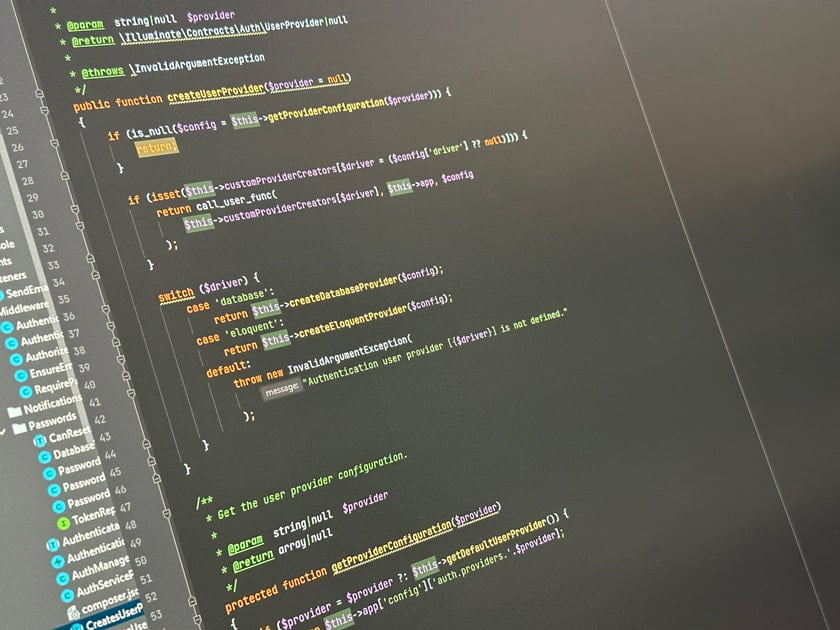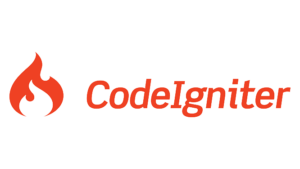PHP has evolved exponentially over the past few years, with many frameworks emerging to facilitate web development. Laravel framework has gained significant popularity among these, often considered the best PHP framework amongst fellow PHP developers. But is that assertion valid?
I try to discuss and answer this question by evaluating Laravel’s attributes, comparing it with other PHP frameworks, and considering various development requirements. Being an established and leading Laravel agency in the UK means we should be well-placed to provide our opinion on this matter!
What is Laravel
In short, Laravel PHP framework is an open-source PHP web framework, launched in 2011 by Taylor Otwell, designed to assist in web app development following the model-view-controller (MVC) architectural pattern. Its syntactic sugar, elegant design, and robust features have endeared it to many developers. Laravel framework provides tools for routing, security, and database migrations, among other tasks. It’s praised for its intuitive interface, comprehensive documentation, and vibrant community support.
I have already written a more in-depth article on what Laravel is. If you are currently trying to decide on your project’s PHP framework, I highly recommend you have a quick read.

Features and Benefits of Laravel
Laravel offers features that simplify many aspects of web development, making it a compelling choice for developers. Some of these features are:
- Eloquent ORM: Laravel’s ORM, Eloquent, offers an active record implementation for working with databases. This allows developers to interact with their databases like PHP objects. It also makes for very easy object-relational mapping within the web app code for quicker development cycles.
- Artisan Command Line: The Artisan console is a command-line tool included with Laravel that assists developers by generating code and handling repetitive tasks.
- Blade Templating Engine: Blade is a powerful templating engine in Laravel. It lets developers work with the typical PHP code in their views.
- MVC Architecture Support: The Laravel PHP framwork supports MVC architecture like Symfony, ensuring clarity between logic and presentation. This support enhances performance and allows better documentation.
- Security: Laravel offers robust security features, including protection against cross-site request forgery, SQL injection, and cross-site scripting.
- Laravel Packages: One of the best “features” of Laravel is the extensive package support. Depending on the project, that may be as simple as small packages to assist with the development, more in-depth CMS (Content Management Systems) or even official packages from 3rd party companies – think PayPal, Stripe and other APIs.
Laravel vs “Other” PHP Frameworks
 When compared to other PHP frameworks, Laravel shines in several areas. For instance, CodeIgniter, another popular PHP framework, lacks built-in user authentication and authorisation support, whereas Laravel provides these as built-in features. Laravel’s Blade templating engine is more powerful and intuitive than the templating engine in CakePHP. Laravel’s syntax is arguably more elegant and readable than Symfony, another MVC-based PHP framework.
When compared to other PHP frameworks, Laravel shines in several areas. For instance, CodeIgniter, another popular PHP framework, lacks built-in user authentication and authorisation support, whereas Laravel provides these as built-in features. Laravel’s Blade templating engine is more powerful and intuitive than the templating engine in CakePHP. Laravel’s syntax is arguably more elegant and readable than Symfony, another MVC-based PHP framework.
However, it’s important to note that Laravel framework isn’t always the optimal choice. For instance, Laravel’s richness can sometimes translate to a slower performance than lighter frameworks like Lumen or Slim for small applications or APIs. Our thinking is that if a project is for a small additional feature with an absolute requirement for super-fast load times, then Laravel MIGHT not be the best option. In all of our experience, this has only been the case 2 times, but it’s still a question we ask during scoping a new project.
So, is Laravel the best?
Deciding the best is almost impossible and usually ends with an “it depends” answer. That being, Laravel is one of the most used, liked and supported PHP frameworks available today. That alone will make it an easy pick for most PHP developers.
The strengths of Laravel – its robustness and wealth of built-in functionalities – make it an excellent choice for complex, feature-rich web applications.
From a learning perspective, Laravel’s eloquent and expressive syntax and comprehensive documentation make it an attractive choice for beginners.
The ecosystem and community are other factors to consider. Laravel boasts a vibrant community and a rich ecosystem, including Laracasts (a screencast tutorial site), Envoyer (for deployment), and Forge (for server management). This ecosystem can prove to be a vital asset.
At the end of the day, choosing a PHP framework often depends on the specific project’s requirements and the developer’s or team’s preferences and expertise. It’s always a good idea to understand the strengths and weaknesses of each framework and evaluate them against the needs of your project before making a decision.
From a purely business point of view, we often recommend Laravel due to its extensive support, 3rd party packages, the Laravel community and the ease of finding reliable Laravel developers. There is nothing worse than being left with a web application built on a framework that has very few developers – for those reasons, Laravel is the best PHP framework.
